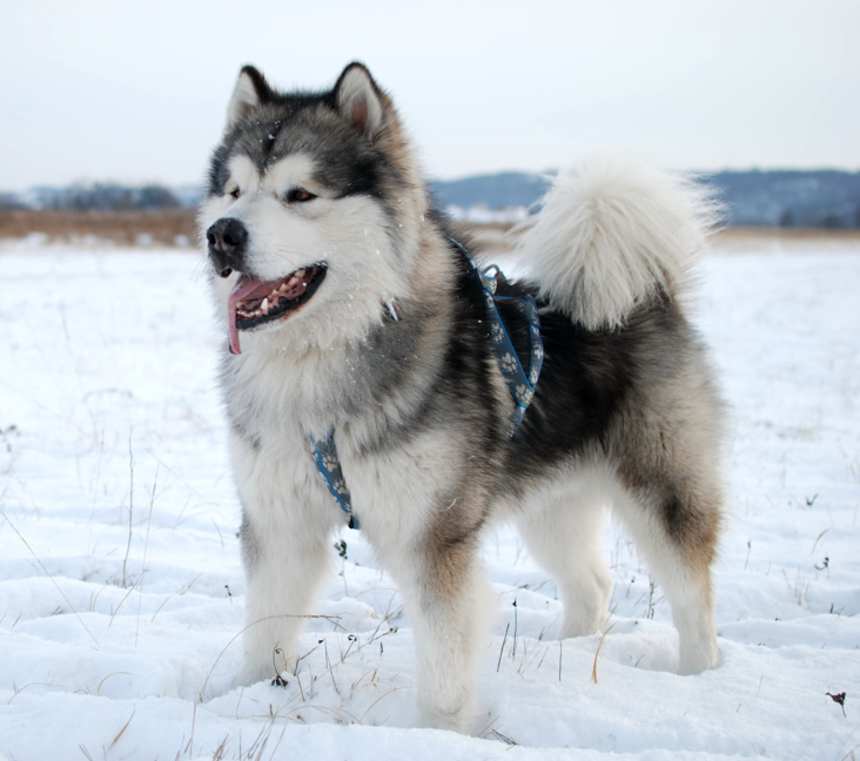Do Alaskan Malamutes have health problems?

Yes, Alaskan Malamutes are prone to certain health problems, although not all individuals will experience them. Common health concerns for this breed include:
- Hip and/or elbow dysplasia: Hip and elbow dysplasia are two of the most common skeletal diseases seen in dogs. They are similar diseases in which either the hip or elbow joint has grown abnormally or is misshapen. The abnormal shape prevents the joints and sockets from properly meeting, resulting in rubbing and grinding instead of sliding smoothly. Unlike in hip dysplasia, where the main problem is joint instability, the abnormalities seen in elbow dysplasia often result in pieces of bone and/or cartilage breaking loose and irritating the joint tissues. Over time, the rubbing from dysplasia can cause a variety of issues, such as pain, lameness, and secondary osteoarthritis. Surgery can be done to fix the joint if diagnosed before the onset of arthritis.
- Osteochondrosis dissecans (OCD): This condition causes improper growth of the cartilage in the joints. It’s usually observed in the elbows but has also been seen in the shoulders. The lack of cartilage properly covering the bone creates stiffness in the joint to the point that a dog becomes unable to bend her elbow. High protein and foods designed to increase growth (such as puppy formulas) may contribute to the development of this condition.
- Patellar luxation: Also known as slipped kneecaps, patellar luxation is a common problem in many dog breeds. It occurs when slight abnormalities cause the knee joint to slide in and out of place. This can cause pain and occasional lameness. Surgical treatment is available for severe cases, although many dogs lead normal lives without treatment.
- Progressive retinal atrophy (PRA): PRA is a group of genetic diseases that affect the retina. They are progressive degenerative diseases and will eventually cause blindness in both eyes. There is no effective treatment to stop PRA.
- Inherited polyneuropathy: These inherited conditions can cause the inability to feel pain and a loss of proprioception. Signs associated with these conditions may include generalized weakness and muscle tremors.